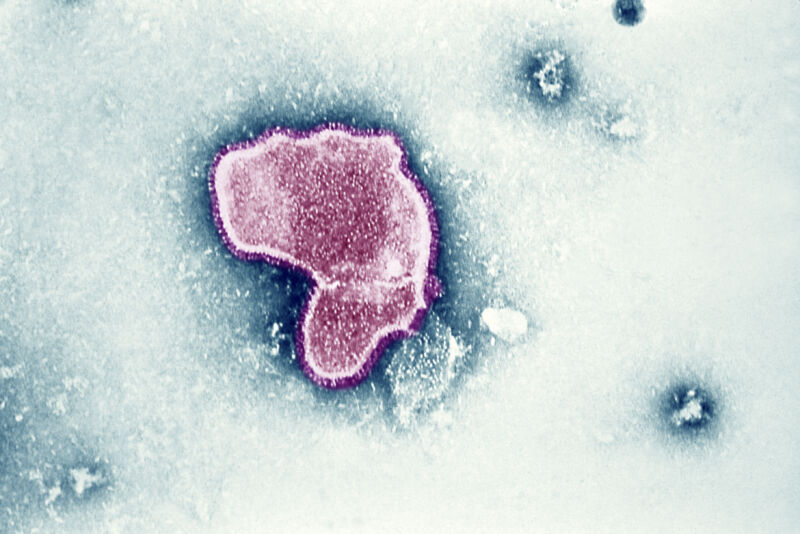
The Food and Drug Administration gave the world’s first approval of a vaccine against respiratory syncytial virus (RSV), a feat researchers worked towards for decades after a catastrophic clinical trial in the 1960s.
The vaccine, called Arexvy from pharmaceutical giant GSK, is approved for adults age 60 and older. The Centers for Disease Control and Prevention will have to recommend the vaccine before it is available for use. The agency’s advisory committee on immunizations will then meet from June 21 to 22 and could then discuss the vaccine.
RSV is a common, highly contagious seasonal respiratory infection. It is often associated with infants, who are at particularly high risk of developing serious illness. In fact, bronchitis from RSV infections is the leading cause of hospitalization in infants under 1 year of age in the US. But the virus is also dangerous for older adults, with an estimated 60,000 to 160,000 hospitalizations and 6,000 to 10,000 deaths in older adults each year in the country.
In an ongoing, randomized, placebo-controlled clinical trial in adults aged 60 years and older, in which approximately 12,500 participants received Arexvy and 12,500 participants received placebo, the vaccine reduced the risk of developing a lower respiratory tract infection from RSV by 82%, 6 percent. , and reduced the risk of developing a serious RSV infection by 94.1 percent, the FDA noted.
“Older adults, particularly those with underlying health conditions such as heart or lung disease or a weakened immune system, are at high risk for serious illness caused by RSV,” said Peter Marks, director of the FDA’s Center for Biologics Evaluation and Research. . in a statement. The approval Wednesday of this first RSV vaccine is “an important public health achievement to prevent a disease that can be life-threatening,” he added.
Triumph after tragedy
GSK also celebrated the groundbreaking approval, with GSK’s Chief Scientific Officer Tony Wood saying the approval “marks a turning point in our efforts to reduce the significant burden of RSV.”
GSK’s vaccine is just the first of several RSV vaccines in the works. Pfizer has an RSV vaccine for adults ages 60 and older that was nearly 86 percent effective against serious disease in a phase III trial. It is now under review by the FDA and is expected to be approved this month. In January, Moderna said its RSV vaccine for older adults was 82 percent effective against serious illness.
Pfizer also has a vaccine to protect babies that is approaching regulatory decision. When given to pregnant participants in a phase III trial, the vaccine was 82 percent effective in preventing severe RSV in the infant’s first three months and 69 percent effective during the first six months.
The vaccines are a triumph after researchers spent decades trying to find a safe and effective design for the immunizations. Small trials of early vaccine candidates in the 1960s resulted in children developing more severe RSV than unvaccinated children. Two vaccinated children died from the effects of their infection.
Later research showed that those early doomed vaccines presented a key protein – the F protein – in the wrong conformation, prompting the immune system to generate impotent antibodies and exaggerated inflammatory responses that exacerbated the disease. It wasn’t until decades later that researchers at the National Institutes of Health discovered how to lock the F protein into a conformation that would elicit an effective immune response, paving the way for current vaccine designs.

